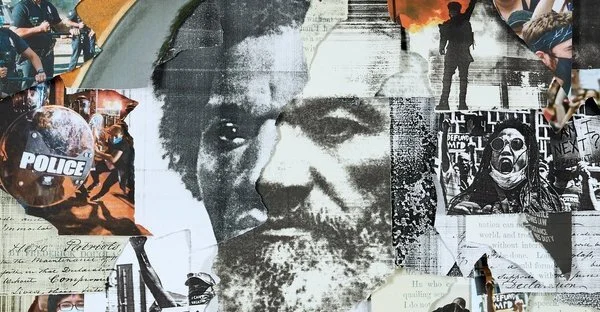Happy Thursday, loyal readers, and welcome especially to the newer members of our reading community who have decided to give this newsletter a try. I hope it’s a good match for you.
As summer ends and school begins, support for Black Lives Matter has started to wane, particularly among white people. As Tre Johnson pointed out in Issue #250, Black people “know what happens next.” White people disengage, apologize for missing antiracist book club meetings, and return to prioritizing their comfort. (Evidence: The Democratic National Convention.)
This week’s lead article, “The Douglass Republic,” encourages activists to take on the “robust skepticism” and “disciplined aloofness” of abolitionist Frederick Douglass, while making sure always to call out the delusion of white supremacy.
If Mr. Douglass doesn’t intrigue you, I also recommend today’s three other articles, which explore the challenges of giving birth as a Black woman, the legacy of restrictive racial covenants on segregation in the Bay Area, and the ineffectiveness of the prison system to do anything besides punishing people we don’t care about. Please read as much as you like, and as always, share with me your thoughts!
After the passage of the 1870 Civil Rights Act, Frederick Douglass warned Black people not to get caught up in hope and a “delirium of enthusiasm.” A triumph today could turn into a backlash tomorrow. Mr. Douglass knew that “power concedes nothing without a demand” and that “if there is no struggle, there is no progress.” In other words, white people may temporarily give up some power, but long-lasting change and true equality do not come easily.
In this well-written article, Jabari Asim worries that our country may see a pendulum shift that negates the progress made this summer. Prof. Asim writes, “Robert E. Lee’s stone-carved likeness might be lying face down in the street, but the customs and beliefs he embodied are far sturdier.” Once white people stop buying up all the anti-racism books, what’s next? Things will go back to normal, Prof. Asim suggests, unless activists take up the pathos of Mr. Douglass and expose American hypocrisy, challenge myths of exceptionalism, and spit indignant fire. (18 min)
A Litany For Survival: Giving Birth As A Black Woman In America
Naomi Jackson: “Having a Black child in America has always been an act of faith. In the antebellum South, one in every two children born to an enslaved woman was stillborn or died within a year. If they lived, the babies were often sold away from their mothers. Still today, we worry that our children will not survive. The gap between infant mortality rates for Black and white babies is wider now than it was during slavery. But our children are not the only ones in danger. As I began seriously considering having a child, I started to read more about the risks that pregnancy poses to Black women in the United States. Black women are three to four times more likely to die than white women, regardless of income or education. If a doctor doubted Serena Williams when she recognized the symptoms of blood clots, which she had experienced before, how would a Black woman without the protection of celebrity fare?” (19 min)
Sophia Heath is a white teenager and activist who organized a large Black Lives Matter demonstration last June in her hometown of San Mateo, a suburb of the Bay Area. Now she wants to know why her Hillsdale neighborhood is so white and why only 1 percent of her high school peers are Black. She finds out that the 1941 deed to her family home included a racial covenant that restricted people of color from purchasing homes in the neighborhood. Even though those covenants have been unconstitutional since 1948, their harmful effects remain, causing a legacy of segregation. The question is, What’s the way to repair the harm? Historian Richard Rothstein has an idea. (9 min)
If the purpose of prisons is to punish people we don’t like at an extraordinarily high price, then yes, prisons work fine. But if the point is to reduce crime or to rehabilitate people to be better, then the answer is no way. Lauren McKeon explores the history of women’s prisons in Canada, arguing that most women get locked up not because of violent crime but rather as a result of domestic violence, drug addiction, or living on the street. Ms. McKeon calls for an immediate moratorium on the building of new prisons, followed by stages of decarceration and excarceration. (22 min)
Did you read all the articles? Hope so. Thank you very much for reading yet another issue of The Highlighter. Let me know what you thought by hitting reply or by clicking on the thumbs below. I appreciate your feedback.
Also, let’s welcome our community’s 6 new members: Will, WW, Kelly, Juan, Rishi, and Jonathon. I hope that you find this newsletter a solid addition to your Thursday email inbox.
If you really like The Highlighter, please help it grow and get better. I appreciate your support. Here are a few ways you can help:
Forward today’s issue to a friend and urge them to subscribe. Word of mouth is the best way to grow our community.
Keep my reading energy nice and high by buying me a cookie. Big thanks to an anonymous donor for your 3 cookies.
Support the newsletter’s growth by becoming a VIP member. Big thanks to Lois for joining the esteemed club.
On the other hand, if you’ve given this newsletter a chance, but it’s just not a part of your weekly reading routine, please unsubscribe. See you next Thursday at 9:10 am PT!
